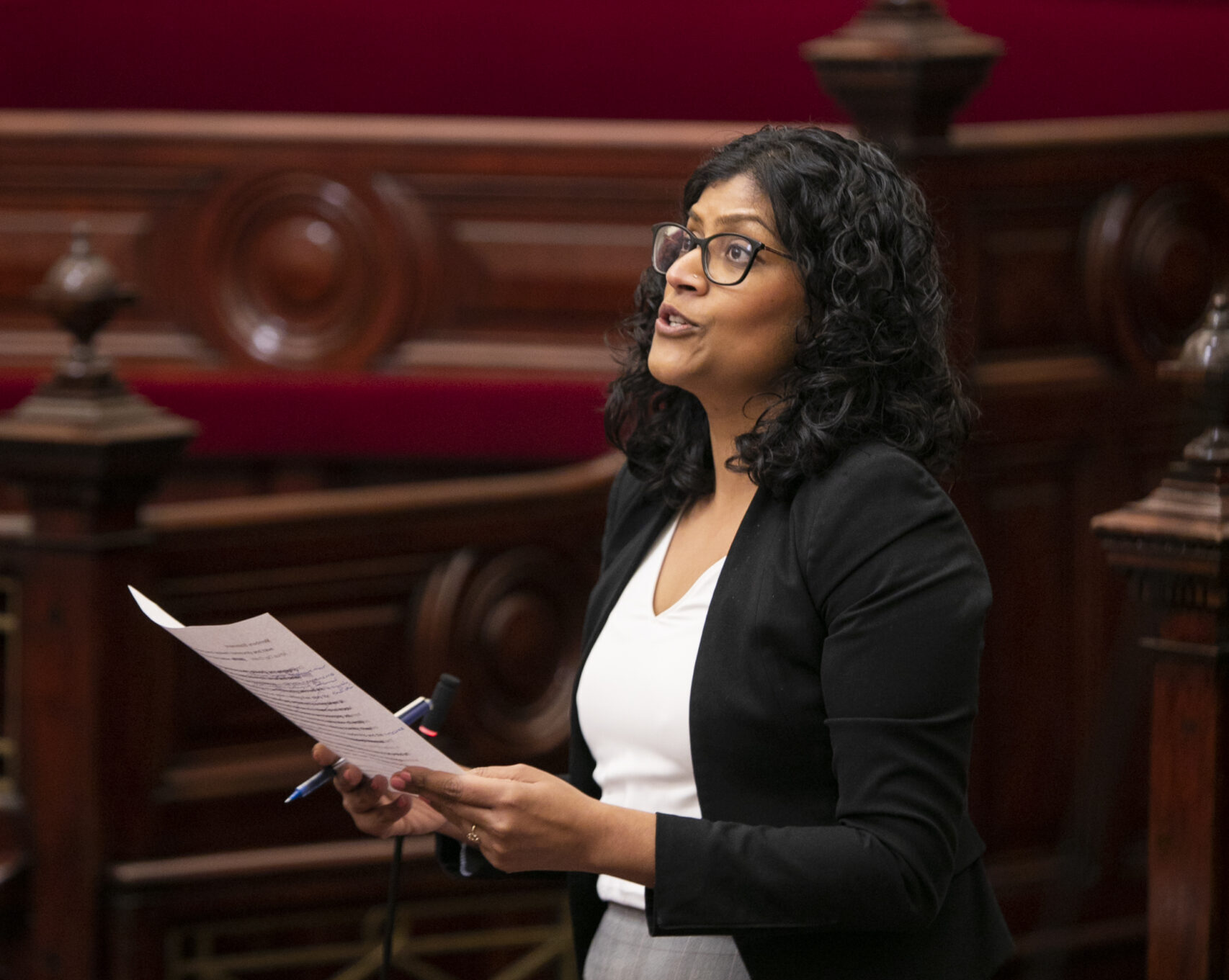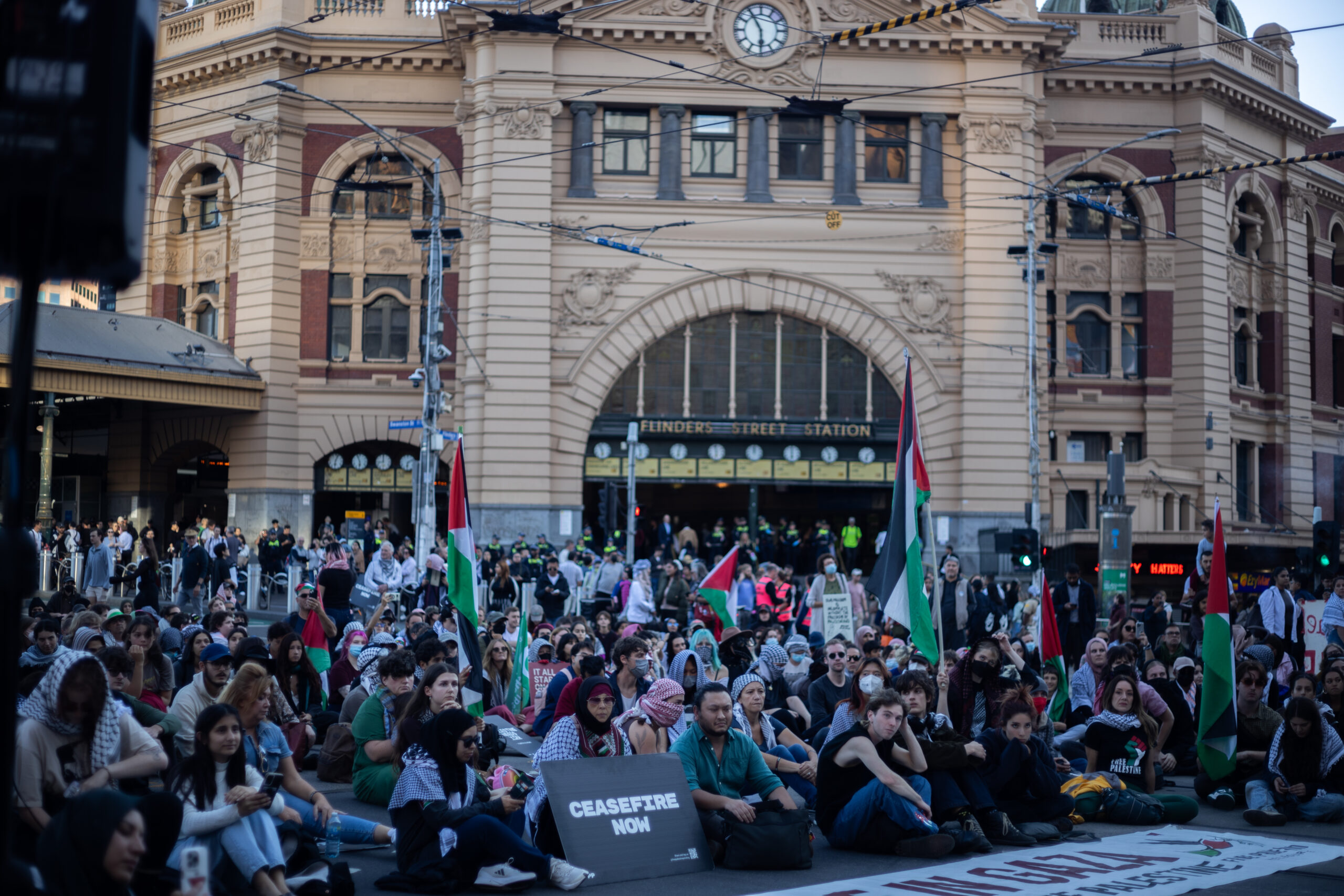Photo Courtesy: Nico Photography
In the first week of Parliament for 2023, I second read the Greens’ Bill to raise the age of criminal responsibility from 10 to 14.
SECOND READING – CHILDREN, YOUTH, AND FAMILIES (RAISE THE AGE) AMENDMENT BILL 2023
I move:
That the bill be now read a second time.
Two years ago, I said I was proud and humbled to be introducing a bill to raise the age of criminal responsibility in the Victorian Parliament, to make Victoria the first state in the nation to raise the age.
Today my feelings are perhaps a step closer to frustration with our lack of progress in this place towards finally committing to this most obvious evidence-based reform.
Although I am also encouraged that outside of this place, the case for reform has continued to grow.
Such that today there are no longer any credible arguments or reasons not to raise the age in Victoria to 14, even if in truth there never really was, beyond the weaknesses in our politics and in our governments.
When questioned by me on this issue over the last four years, the Victorian Government has deflected by describing truths, rather than providing any reasons, as to why they have not acted.
They have said that raising the age will require a lot of work, to identify and strengthen the gaps in the available child services across the state.
They have said that they will need to develop alternative pathways, such as restorative justice programs, to the criminal justice system for very young children.
Finally, they have said that they are focussed on programs that target the causes of children under 14-years’ old engaging with the criminal justice system in the first place.
To all this I can only fully agree, and I commend the government where they have started this work.
But all this is no excuse to abandon human rights and the life outcomes for that small number of children under 14 that will inevitably end up in contact with the criminal justice system.
We cannot simply give up on these children, 10- to 13-year-olds, and just accept that their lives are destined to follow a path of greater trauma, mental illness, ongoing contact with the adult prison system and premature death, not due to their own complex needs, but because of the way we as a society chose to respond.
Not when we now know there are much better options.
To plagiarise an expression recently made popular in Victorian politics… good government must do both.
We must do all we can to address the root causes of children engaging with the criminal justice system, such as socio-economic inequality and intergenerational cultural disadvantage.
But we also must accept the facts that ANY early contact with the criminal justice system, not just the exceptionally rare cases of detention under sentence, is criminogenic, and a significant risk factor for not only lifelong social disadvantage, but also serious offending and ending up in an adult prison.
Good government must also work to prevent this. And the evidence says this starts by raising the age of criminal responsibility to 14.
I am not going to repeat again, as I did in 2021, the many reasons why Victoria needs to raise the age.
As I said I think we have now got to the stage where we have well and truly answered that question.
If necessary, anyone can now access the comprehensive submissions and analysis from the leading legal and medical stakeholders, as well as the recently released report of the Standing Council of Attorneys-General.
But before summarising the bill, I will outline briefly the context behind the second aspect of this bill, added since 2021, proposing to establish a prohibition on solitary confinement in youth detention centres.
In 2019 the Victorian Ombudsman inspected three different Victorian secure facilities – the adult Port Phillip prison, the Malmsbury Youth Justice Precinct, as well as Secure Welfare Services, a child protection facility.
What she found at all three facilities was practices amounting to the solitary confinement of children and young people – practices clearly in breach of both the Victorian Charter of Human Rights and the UN Convention against Torture.
Solitary confinement is explicitly defined under international law, by rule 44 of the United Nations’ Standard Minimum Rules for the Treatment of Prisoners (known as the Mandela rules), as “the confinement of prisoners for 22 hours or more a day without meaningful human contact.”
Officially the Department of Justice and Community Safety and the Department of Families, Fairness and Housing do not define or use the term ‘solitary confinement’ in these facilities – they prefer less-menacing expressions like ‘isolation’ for youth justice, ‘seclusion’ in secure welfare, and ‘separation’ in prison.
However, euphemisms aside, the Ombudsman found that incidences of these practices, isolation, seclusion and separation, used against children in Victorian facilities, often equate to solitary confinement as defined by the Mandela Rules.
As the Ombudsman outlined in her report, the solitary confinement of children and young people is particularly egregious because of the established medical evidence that people under 25 are still developing physically, mentally, neurologically and socially, meaning periods of solitary exacerbates the risk of causing serious and lifelong harm.
More disturbingly, at the Malmsbury Youth Justice Centre she found the disproportionate use of isolation and solitary confinement of Aboriginal young people, despite it being established since the Royal Commission into Deaths in Custody that Aboriginal prisoners subjected to solitary confinement suffer more extreme anxiety and trauma from such experiences.
The Ombudsman was unequivocal in her recommendation that (I quote):
“Recognising the significant harm caused by the practice, that it is not unreasonable for detaining authorities to provide meaningful human contact even when a person is isolated, and that separation and isolation do not invariably amount to ‘solitary confinement’, establish a legislative prohibition on ‘solitary confinement’, being the physical isolation of individuals for ‘22 or more hours a day without meaningful human contact.’
Last year the government finally acknowledged this recommendation by introducing a bill to prohibit solitary confinement, but only in secure care facilities, not youth detention centres or prisons.
Then without explanation, the government refused to debate or try and pass its own bill, inexplicably leaving the most vulnerable children in the child protection system without a statutory protection against solitary confinement.
This is unacceptable and we call on the government to urgently reintroduce this bill.
At the same time this bill today will extend the government’s proposed prohibition, that we hope and expect to be reintroduced in their child protection bill, to also apply to youth justice and youth detention centres.
This is particularly important because it was the two correctional facilities, not secure care, where the Ombudsman found the worst instances of solitary confinement, and breaches of human rights, concluding that (I quote):
“…Many of the practices in both our youth justice and prison systems are likely to be contrary to law, incompatible with Victoria’s human rights legislation, oppressive, discriminatory or simply, wrong.”
I will now summarise the bill.
Raising the age of criminal responsibility
The age of criminal responsibility in Victoria is established by section 344 of the Children, Youth and Families Act 2005 (the Act) that states: ‘It is conclusively presumed that a child under the age of 10 years cannot commit an offence’.
The Bill seeks to amend section 344 to state that: ‘It is conclusively presumed that a child under the age of 14 years cannot commit an offence’.
This means that children aged 13 or younger can no longer be charged with a criminal offence or be subject to criminal law proceedings, while children aged 14 years and above may continue to be charged with criminal offences.
This amendment makes redundant the current rebuttable common-law presumption, known as doli incapax, that a child between 10 and 13 years cannot commit a crime, because they are incapable of differentiating between right or wrong.
Although some claim that this presumption offers sufficient protection to children in criminal matters, this view has been thoroughly criticised by legal experts.
Because we know that in Victoria the majority of children that are charged aged 10 to 13 will be held in custody on remand, but also that these same children are almost certain to have their charges dismissed by a court or withdrawn by prosecutors.
The result is in Victoria we have a situation where a small number of children under 14 are being held in detention, but none are serving time under sentence, nor are they ever likely to do so.
Effectively, this means children experience the worst aspects of the criminal justice system, including invasive criminal procedures and pre-trial detention, regardless of their guilt, and are then dumped back into the community in a worse place than when they entered.
Those few voices continuing to argue against raising the age on the basis that we need to ‘continue’ to make 10- to 13-year-olds face consequences, are either ill-informed or are deliberately misrepresenting the practical realities of the current system that does not do this.
Unlike the current system that charges, remands and releases young children without sentence, this bill allows the development of systems to be put in place for children to understand and comprehend the consequences of their behaviours, through restorative community-based agencies and programs.
Other intensive interventions should provide housing, treatment of mental health and addiction problems, specialist medical treatment, and education support. Aboriginal-operated organisations will be resourced to provide culturally appropriate programs for First Nations children.
The bill’s delayed commencement date, 1 July 2024, allows sufficient time for these alternative therapeutic and restorative, community-based programs to be properly embedded as the alternative to the criminal justice system for all children aged under 14.
This will take time, so the bill has transitional arrangements providing that raising the age of criminal responsibility is not retrospective, and that children between the ages of 10 and 13 at the time of an offence committed before the commencement day can continue to be held responsible in criminal law proceedings.
However, it is expected that, in practice, a discretionary approach will be adopted when considering whether to commence criminal proceedings against children under 14 in the period prior to commencement.
Prohibiting solitary confinement in youth detention
The bill inserts two new sections in the Act.
New section 487AA imposes a prohibition on use of solitary confinement across all youth justice facilities: remand centres, youth residential centres and youth justice centres.
Solitary confinement is defined in the bill as the physical isolation of a person without meaningful human contact for more than 22 hours within a 24-hour period, consistent with the Mandela Rules.
New section 488AAA sets out that the Secretary, DJCS, must prepare and publish the minimum requirements for what constitutes ‘meaningful human contact,’ and these must be complied with by any person employed or engaged in a youth justice facility. It is intended that these requirements should include the need for in-person contact.
Conclusion
This bill is about making sure we uphold the most basic human rights of children, to be treated in a way that appropriately recognises and responds to their young age.
The bill also proposes, somewhat incredulously in the year 2023, that we act to ensure that we no longer treat children that are held in detention in a way considered as torture under international law.
But the bill is not simply seeking to tick a box to uphold the most basic human rights for our international reputation.
Because the primary aim of the bill is to reverse the practical, demonstrated, and ongoing failures of the criminal justice and youth detention systems, when responding to the complex and dysregulated behaviours of the most disadvantaged children in the state.
Failures that are why these children are far more likely to show up at emergency departments shortly after their release, with incidences of self-harm.
That is why their life expectancy after experiencing youth detention is a fraction of the national average due to early death.
And, that is why, rather than reducing criminal offending, they result in a reoffending rate from youth detention somewhere north of 80 per cent, and a normative pattern of escalation leading to adult incarceration.
So yes, this about us meeting minimum standards of humanity, but it is also about the practicalities of responding to a Dickensian-era system that is failing children, and failing broader society, and finally responding with a more sophisticated and contemporised, evidence-based model.
As I said two years ago, we can continue to put our heads in the sand, but we cannot deny the evidence, the crime data, the economics forever.
We have wasted two years since I last called for a commitment to act on this issue.
Now, surely it is the time to make this commitment that is necessary so we can begin the real work of building a better system.
I commend this Bill to the house.
Watch the YouTube video here.
This second reading was delivered on February 8th, 2023.




